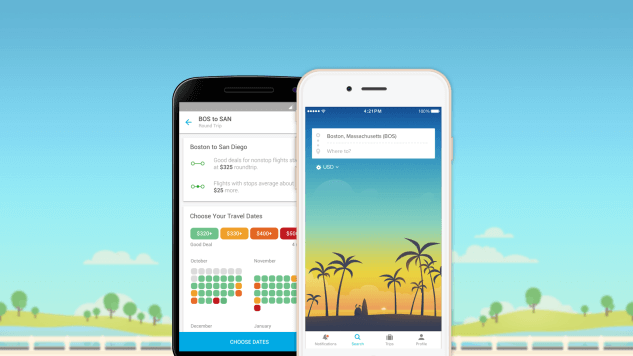
In the travel industry, airlines and travel agents might categorize you as one of the following types of travelers: a standard traveler, a deal-seeker or a first class frequent flyer.
If you’re a standard traveler, you book a ticket when you’re ready and don’t spend too much time thinking about the price or duration as long as you get where you’re going. If you’re a first class passenger or a frequent flyer, you’re ready to go whenever and wherever, so prices don’t hold you back, especially if you have a large amount of miles or points to cash in.
But if you find yourself fitting into the deal-seeker category, you want to know you’re getting the best price before you make a purchase. You’re also probably aware that everyone on an airplane has likely paid a vastly different price for their seat-even if they’re right next to you.
The fluctuation and unpredictable nature of airline tickets is ridiculous and airline companies have more than few tricks up their sleeves for dictating what price you end up paying. How are you supposed to know when to buy a ticket, especially when the price could drop by a significant amount just a few days after you purchased yours?
Luckily, technology comes to the rescue in the form of travel apps such as Hopper, Expedia and Skyscanner, to make purchasing plane tickets a lot easier (and smarter) for you.
Expedia
Expedia is a widely known one-stop travel app that allows users to plan and book all portions of a trip (flight, hotel, car and activities) in one place. Its simple interface and easy to navigate app make it a cinch for customers to browse. On the money-saving side of things, the app partners with more than 400 airlines and 231,000 hotels to offer deals and savings to customers. Hotels have access to what’s referred to as the “Expedia Partner Central” tool which allows them to manage rates and inventory across Expedia sites.




